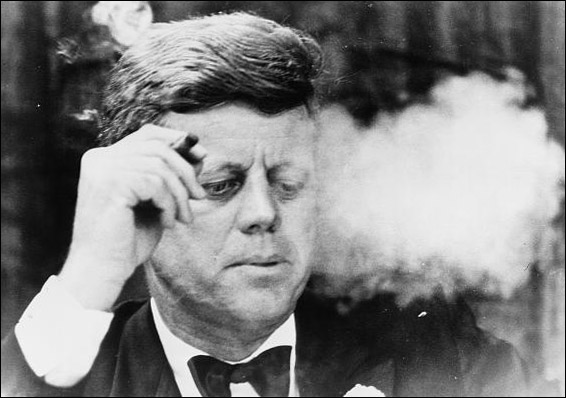
Even as cigarettes and smoking become increasingly marginalized in today’s society, the cigar continues to remain a cultural icon. While there are plenty of cigar detractors, curiously, cigars lack much of the social stigma associated with cigarettes. Of course, the iconoclastic stature of the cigar isn’t quite what it used to be, especially in the mid-20th century. Yet, the image of a cigar pursed in the lips remains strong and steeped in history, reminding us of enduring figures from politics, literature, film, and beyond.
The question at hand is this: why has the cigar remained iconic well into the 21st century? While cigarettes and cigarette manufactures bear the brunt of public outrage, cigars seem to avoid most of that vitriol. The answer is relatively simple. Marketing. Cigarette manufacturers have been targeted due to their aggressive marketing strategies, with advertisements that at one point appeared everywhere. While cigar manufacturers definitely advertise, historically there have been fewer in number and limited in range. It is this difference which has allowed the cigar to remain fairly untouched, despite the health risks that are very well-known and publicized.
Much of this is also related to how the tobacco industry at large is regulated. Many smokers have turned away from cigarettes due to increases in taxes (as well as the attached stigmas). Comparatively, taxes on cigars are much lower than on cigarettes and regulations are much more lenient. Since 2010, cigarette manufacturers have been banned from adding flavorings to their cigarettes. However, the same does not apply to cigars, which can still be sold with a variety of flavors, such as sweet or fruity flavors that appeal to more unsophisticated palates.
Another reason cigars have remained iconic is their perceived allure. Cigars are considered by many to be a much more high class experience than cigarette smoking. Cigarettes have a much greater prevalence in supermarkets, corner convenience stores, and gas stations. While cigars are readily available, they often require the buyer to go to a specific store to purchase them verses any store for cigarettes. Plus, the allure of cigars exists on multiple levels, including one of sexuality (thanks, Dr. Freud). It is not all phallic however. There’s still something sexy about puffing on a cigar that cigarette smoking has lost (partially because of the anti-smoking movement which has successfully transformed the act of smoking into something to be reviled). .
Though cigars are popular and remain a pop culture icon, it is interesting that we so often cite examples of famous smokers that are, quite frankly, dated. We hear about Mark Twain, Winston Churchill, Groucho Marx, Blondie (Clint Eastwood’s character from the “Dollars” trilogy aka “The Man with No Name” trilogy), and, of course, Sigmund Freud, but we rarely hear about those contemporary smokers. Smoking, it seems in general, is no longer en vogue and because of that, though they are not necessarily shy about it, today’s famous smokers seem to keep lower profiles when it comes to their smoking. Thus, we have undoubtedly been left with fewer images of contemporary politicians, authors, and actors grinning widely with cigars bombastically protruding from their mouths..